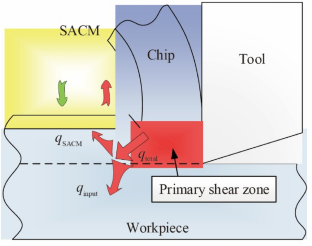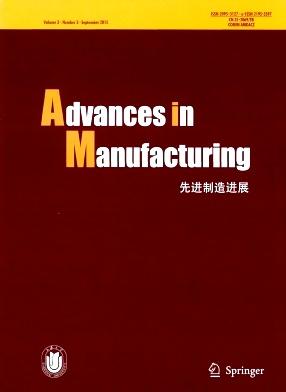The heat generated and accumulated on the machined surface of an Inconel 718 workpiece causes thermal damage during the cutting process. Surface-active media with high thermal conductivity coated on the workpiece to be machined may have the potential to reduce the generation of cutting heat. In this study, a theoretical model for predicting the instantaneous machined surface temperature field is proposed for surface-active thermal conductive medium (SACM)-assisted cutting based on the finite element and Fourier heat transfer theories. Orthogonal cutting experiments were performed to verify the results predicted using the proposed surface-temperature field model. Three SACMs with various thermal conductivities were used to coat Inconel 718 surface to be machined. Thermocouples embedded into the workpiece were used to measure the cutting temperature at different points on the machined workpiece surface during the cutting process. The experimental results were in agreement with the predicted temperatures, and the maximum error between the experimental results and predicted temperatures was approximately 9.5%. The cutting temperature on the machined surface decreased with an increase in the thermal conductivity of the SACM. The graphene SACM with high thermal conductivity can effectively reduce the temperature from 542 °C to 402 °C, which corresponds to a reduction of approximately 26%. The temperature reduction due to SACM decreases with an increase in the distance between the temperature prediction point and machined workpiece surface. In conclusion, the cutting temperatures on the machined workpiece surface can be reduced by coating with SACM.



